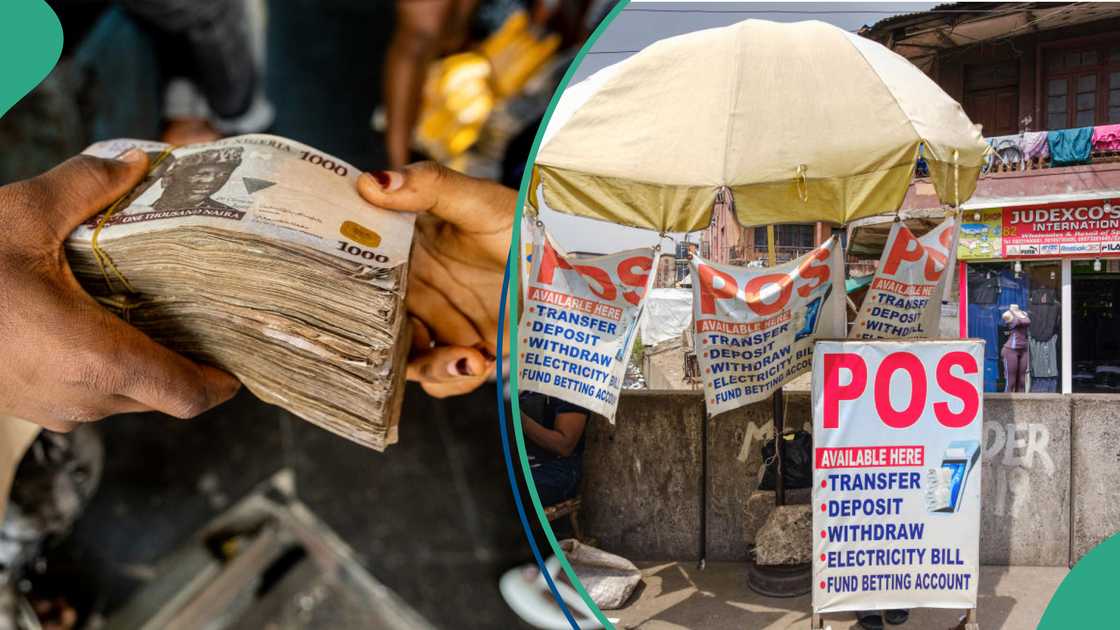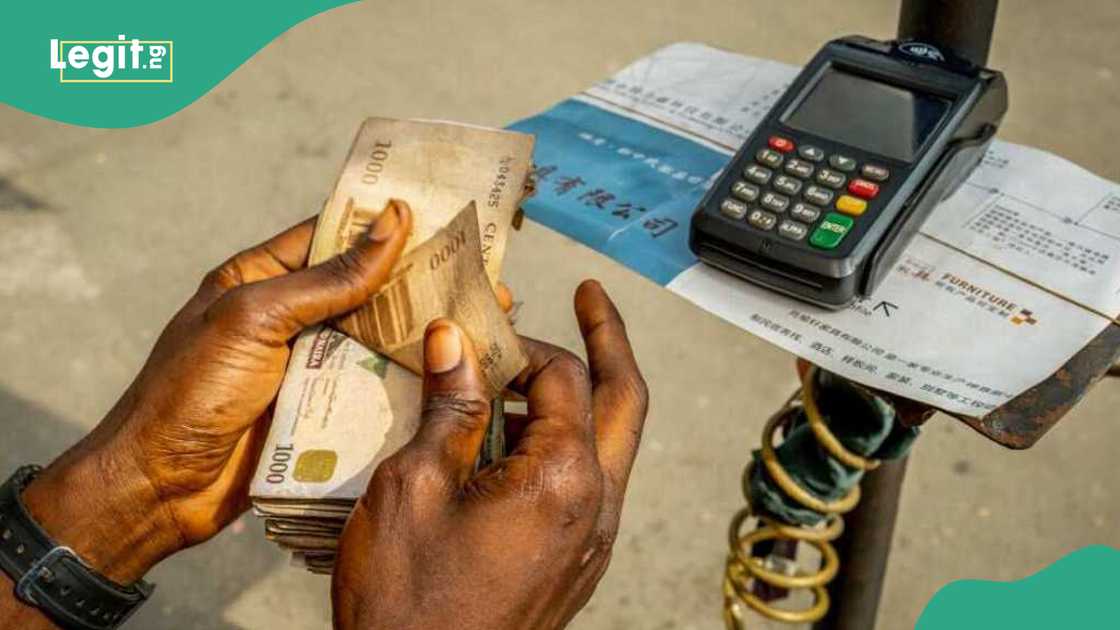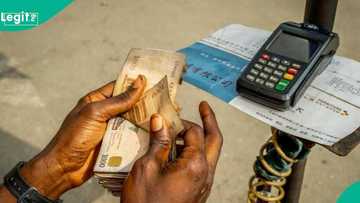CBN’s 60-Day PoS Geo-Tagging Deadline Stirs Reactions from Operators
- Point-of-Sale (PoS) Operators have warned the Central Bank of Nigeria against rushing the order to geo-tag all terminals in 60 days
- They disclosed that if the order is implemented within the stipulated time frame, it could cause cash scarcity
- They asked the apex bank to implement the project in phases to avoid disruptions in the financial system
Legit.ng’s Pascal Oparada has reported on tech, energy, stocks, investment and the economy for over a decade.
On August 25, 2025, the CBN directed that all existing Point of Sale (PoS) terminals must be geo-tagged within 60 days, while new devices must be tagged before certification.
The circular, signed by Rakiya Yusuf, Director of the Payments System Supervision Department, aims to enhance oversight, reduce fraud, and improve policy implementation across Nigeria’s payment ecosystem.

Source: Getty Images
Operators call for caution
Reacting to the mandate, Dr. Obioha Oti, acting National President of the Association of Mobile Money & Bank Agents in Nigeria (AMMBAN), urged the apex bank to avoid a rushed rollout.

Read also
GTBank raises ₦365bn to hit ₦500bn target as nine banks now meet CBN’s recapitalisation rules
He compared the timeline to the 2023 naira redesign crisis, which triggered severe cash shortages.
“The 60-day ultimatum is too short for a nationwide exercise of this scale,” Oti said, noting that Nigeria has over 1.9 million active PoS terminals spread across diverse terrains and connectivity levels.
According to a punch report, he recommended a phased implementation over six months to one year to avoid disruptions.
Why it matters: The PoS economy
The PoS system has become the backbone of Nigeria’s payment infrastructure, processing over 1.5 billion transactions worth ₦10.7 trillion in 2023, according to NIBSS data.
Oti warned that any rushed implementation could disrupt services, especially in rural areas, and worsen financial exclusion.
He stressed that the directive must aim to “map and close access gaps, not create new ones.”
Without support such as device financing or network partnerships, many rural agents may be pushed out of the system.

Read also
CBN sets October 2025 deadline for banks, Fintechs to adopt ISO 20022, geo-tag PoS terminals
“Learn from the past” – Industry recommendations
Oti recommended that the CBN adopt a phased rollout, starting with urban centres where connectivity is stronger, before expanding to rural areas.
He also called for stop-gap measures such as temporary exemptions to ensure services are not cut off during the transition.
He further urged the CBN to treat AMMBAN as a critical partner in the process, saying, “For this directive to succeed, agents’ field realities must be factored into planning and execution.”
Analysts back CBN’s move
While operators raise concerns, financial experts have largely welcomed the geo-tagging policy.
According to Ayokunle Olubunmi, Head of Financial Institutions Rating at Agusto & Co, the move will make it easier to enforce withdrawal limits and track suspicious transactions.
“It is better late than never. Regulations are simply catching up with a system that evolved outside the CBN’s original design,” he said.
Former Zenith Bank Chief Economist Marcel Okeke also hailed the initiative, saying it would reduce fraud, kidnapping, and armed robbery.
“Every PoS will now be tied to a specific location, making it traceable,” he explained.
Similarly, Tilewa Adebajo, CEO of CFG Advisory, described the directive as “a step in the right direction” for managing money supply and strengthening monetary policy.

Source: Getty Images
Financial inclusion in focus
Despite concerns, AMMBAN said it is sensitising its members on the directive and preparing them for compliance.
The association also plans to use its upcoming national conference in Gombe State to spotlight financial inclusion, especially in underserved northern communities.
Oti concluded that if properly executed, geo-tagging could become a game-changer:
“It will provide accurate visibility into where agents are located, highlight underserved areas, and help expand financial access across Nigeria.”
CBN issues new location rule for PoS operators
A previous report by Legit.ng disclosed that CBN has issued a comprehensive raft of directives, significantly impacting Point-of-Sale (PoS) operators nationwide.
The new regulations confine operators only within a 10-metre radius of their registered business address.
The move aims at tightening regulatory control and curbing fraud.
Source: Legit.ng




